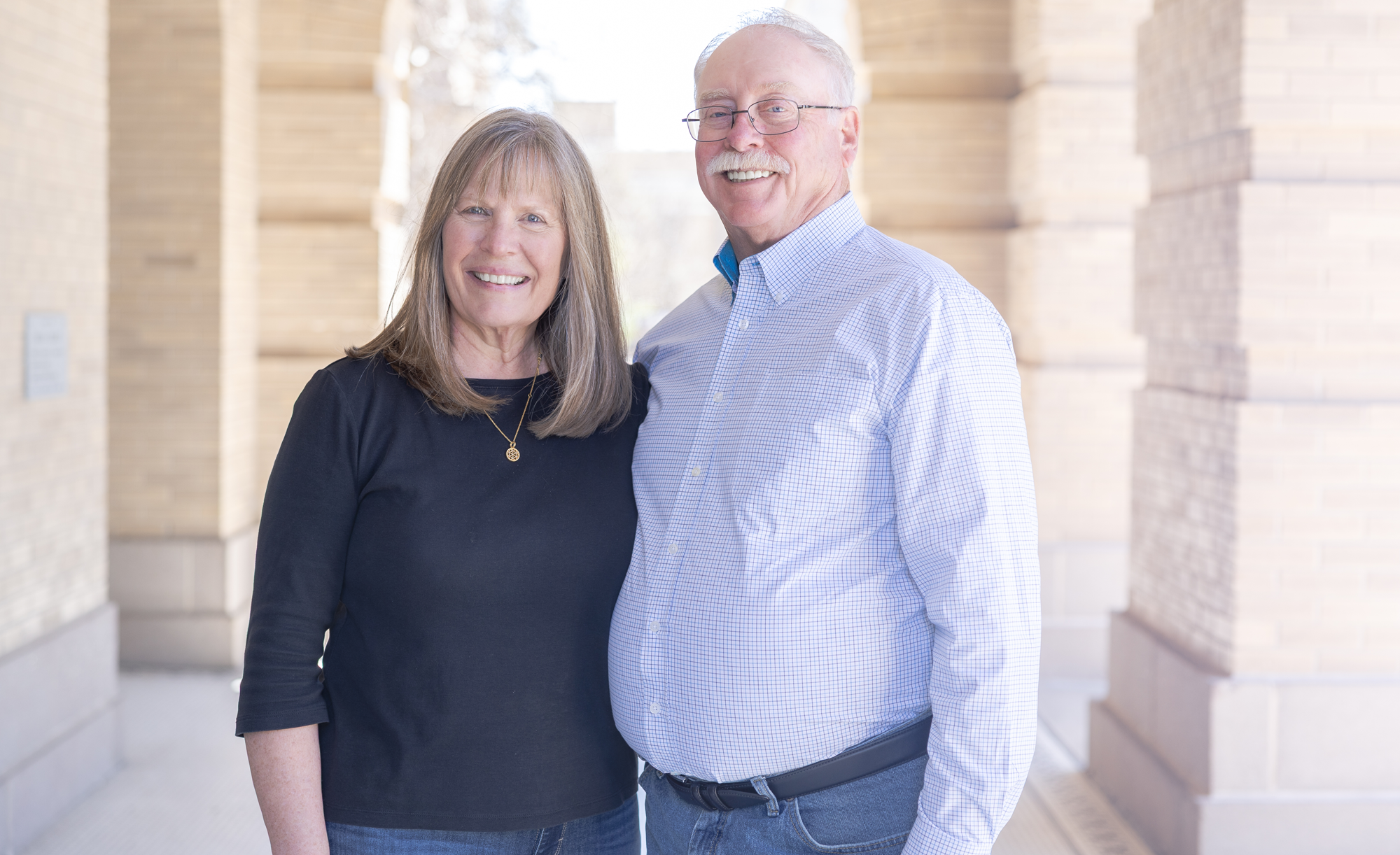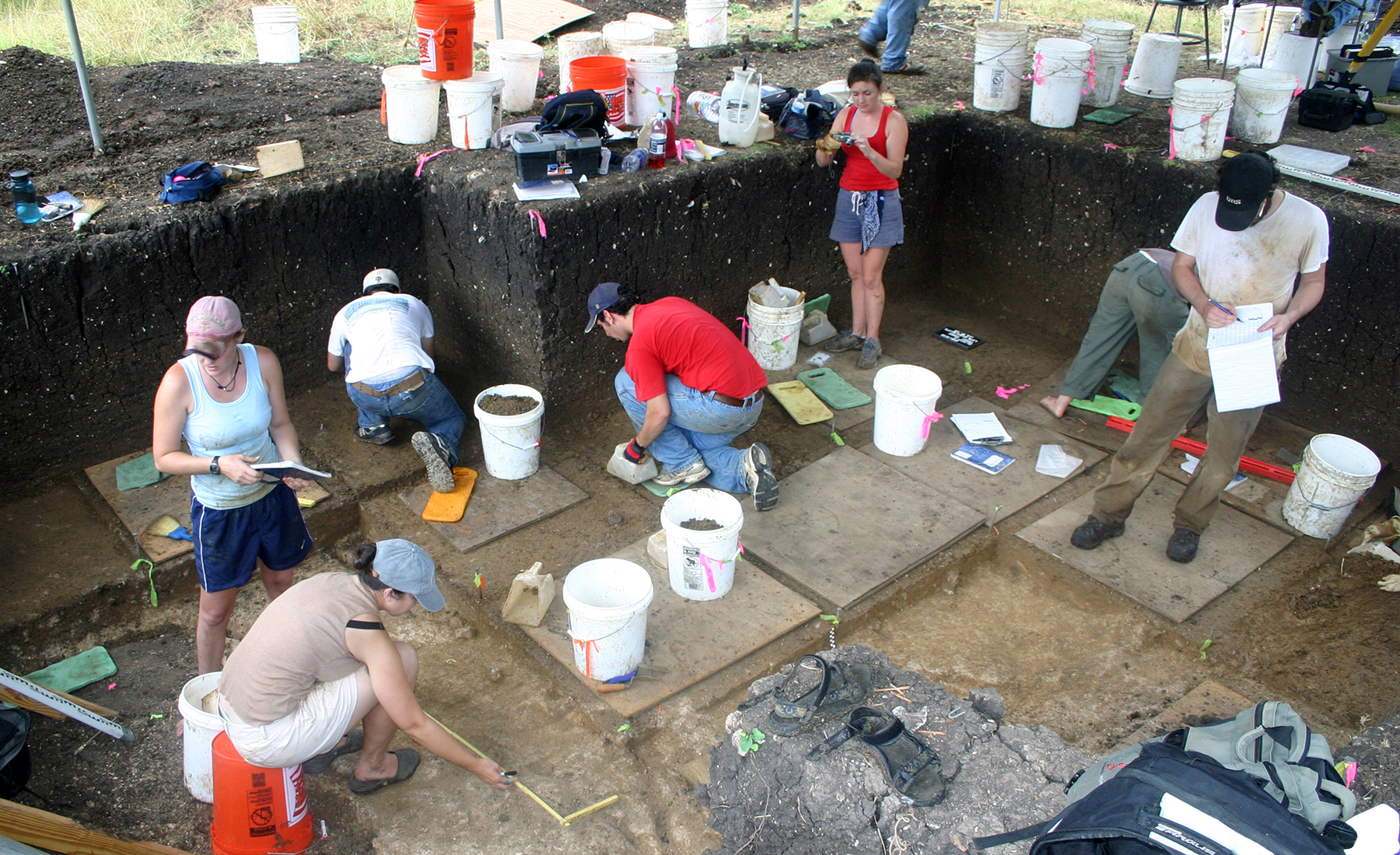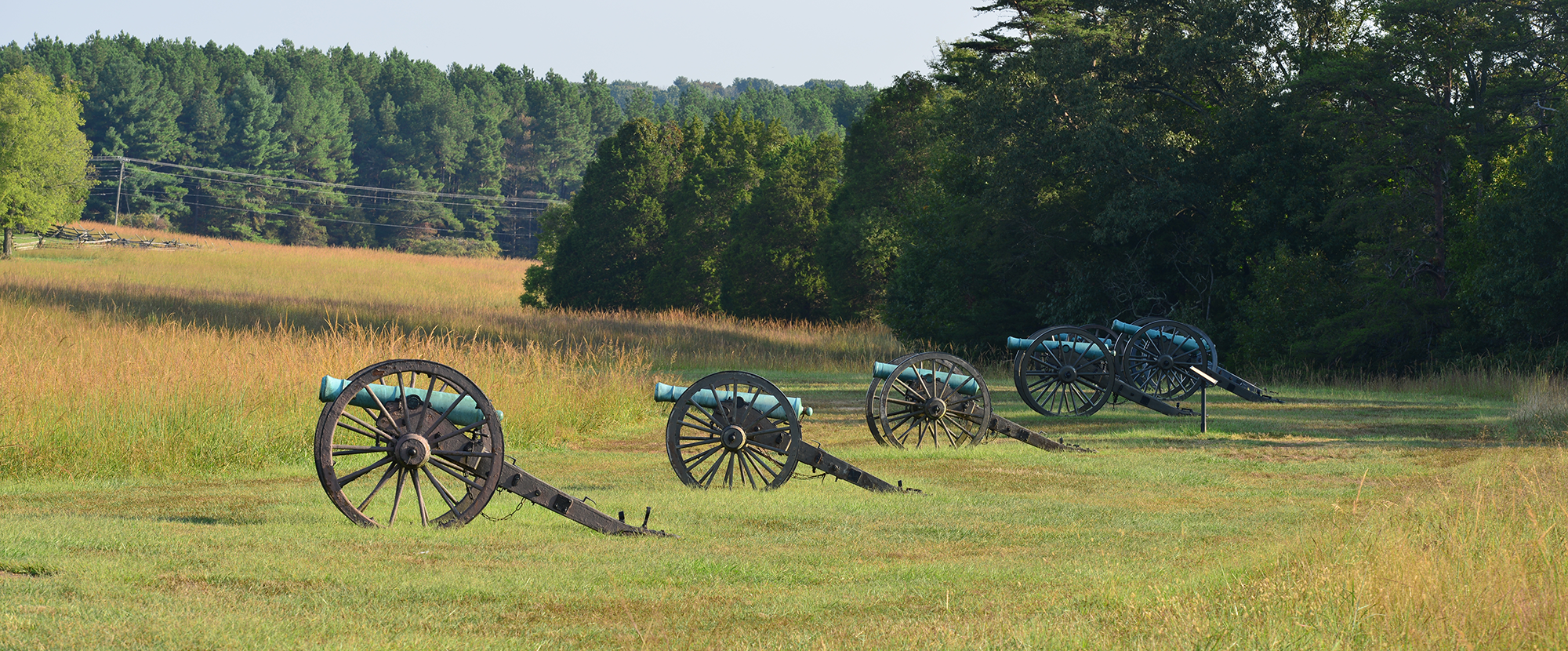
Dennis and Melinda Hughes know from experience that education does not stop at the classroom door. Though their own degrees were not in anthropology—Dennis in engineering technology and Melinda in food science—they credit much of their success to the hands-on learning and mentorship they received as students. Now, as business owners and dedicated Aggie philanthropists, the Hughes are helping current and future students access the kind of immersive, field-based opportunities they wished they had had more of, especially in disciplines where real-world experience can be a game-changer.
This year, they established the Dennis W. Hughes ’79 and Melinda Hood Hughes ’81 Research Travel Endowment in the Department of Anthropology at Texas A&M University. Distributions from the endowment will be used by the department to provide needed financial support for anthropology undergraduate students for travel-related expenses for conference attendance, registration fees, to conduct research, to attend workshops, to collaborate with scholars, and for networking, professional development and education abroad opportunities.
“While I was attending Texas A&M studying Food Science and Technology, there were many opportunities to travel to expand my knowledge of food science and its impact on people,” Melinda shared. “While I was fortunate to work on my degree at Texas A&M, it was not always possible for me to travel and expand my knowledge through experiences outside of formal class presentations. I worked part-time and took a full load of classes each semester, so there was no time to go beyond the classroom.”
The initial inspiration for the endowment came after watching a documentary about the discovery of fossil remains of a new human ancestor in South Africa’s Rising Star cave system. They were surprised and proud to learn that Texas A&M played a key role in the research. Seeing the university’s global involvement in such groundbreaking work reinforced their belief in supporting experiential learning opportunities for students.
During a recent visit to campus, this inspiration deepened when they were invited on a tour of Department of Anthropology labs and facilities led by Dr. Darryl de Ruiter and Dr. Cynthia Werner. The Hughes were moved by the educational potential of anthropology field experiences and equally concerned by the financial barriers that too often stand between students and these opportunities.

“When we quizzed them on the funding for these opportunities, we learned that students have to pay their way in order to obtain the extracurricular knowledge,” Melinda said. “We believe that, in this particular degree, this type of experience can set the Texas A&M graduate apart from other schools when interviewing for a job.”
The Hughes also explained the notion of “paying it forward,” which at its core refers to the idea that those who have benefited from the generosity, mentorship or support of others—especially through scholarships, programs or opportunities—choose to give back not by repaying the original giver, but by supporting the next generation of students or scholars.
“By funding this new endowed scholarship, we can help broaden students’ horizons well into the future,” she said. “You never know how you may affect a student’s life or career trajectory. It could be a conversation, a simple thank you or money. We are at a point in our lives and careers in which we can pay it forward as others did for us when we were students at Texas A&M.”
Empowered by Experience
By investing in this endowment, the Hughes hope to inspire other former students to consider how they can support experiential learning at Texas A&M. The couple, which operates Horizon Survey Inc. in Cypress, Texas, hires many Texas A&M students, especially in the areas of geography and geographic information systems. “We understand firsthand how valuable these experiences can be in shaping a graduate’s career trajectory,” Dennis said.
Dennis, who as a student was a member of the Corps of Cadets, has spent his career in the oil and gas industry, starting with Amoco Production Co. in Houston, where he was first assigned to the Permian Basin in West Texas—the highest-producing U.S. oil field. British Petroleum (BP) acquired Amoco in 1998, creating BP Amoco, which later rebranded as BP in 2001. When BP began selling Amoco assets in 1999, Dennis saw an opportunity. “I worked a deal to start my own company, which manages the same properties,” he said. “Today, we do the exact same job we did in 1980 when I started my career, but instead of just me there are 17 of us, including Melinda.”
We’re grateful to the Hughes family for their generosity and vision. This gift is a reminder of how deeply former students care about creating opportunities for the next generation. Field-based learning experiences—like those supported by this endowment—have the power to transform a student’s perspective and open doors they never imagined.
Melinda spent 20 years of her career as a registered dietitian providing clinical support for both acute and subacute care facilities before switching careers in support of her husband’s business. She decided to leave the world of nutrition to help Dennis set up Horizon Survey and is now the chief financial officer managing all financial matters.
The Hughes demonstrate a deep and lasting commitment to Texas A&M through philanthropic gifts to many areas besides the College of Arts and Sciences. They also support the College of Agriculture and Life Sciences, the 12th Man Foundation and The Association of Former Students. In 2024, they further strengthened their Aggie legacy by enhancing existing endowed scholarships and research funding, particularly in the areas of geography, anthropology and nutrition—fields closely tied to their academic backgrounds. Their contributions reflect a dedication to empowering students, advancing academic excellence and fostering opportunities that will benefit Aggies for generations to come.
Enriching the Student Experience
The travel research endowment will allow students to participate in a variety of high-impact educational activities. “This endowment will provide financial support for our undergraduate students to travel around the country and around the world, something that we have only been able to do in a limited capacity until now,” said de Ruiter. “Not only will this result in students participating in a variety of high-impact educational activities that will be of invaluable benefit to their academic and professional progress, but it will also ensure that all our students have access to such an incredible opportunity, regardless of their financial situation.
“It will support undergraduate students, some of whom will decide to continue their educational pursuits at the graduate level, and I am confident that the experiences they will acquire because of these funds will contribute positively to that decision. Some of these students will also enter the non-academic job market, bringing these positive experiences with them, which will make them more knowledgeable and engaged members of society.”

Dr. Mark Zoran, dean of the College of Arts and Sciences and the R.H. Harrison Family Dean’s Chair, echoes de Ruiter’s sentiments on the lasting return of private gifts like the one funded by the Hughes.
“We’re grateful to the Hughes family for their generosity and vision,” Zoran said. “This gift is a reminder of how deeply former students care about creating opportunities for the next generation. Field-based learning experiences—like those supported by this endowment—have the power to transform a student’s perspective and open doors they never imagined. In the College of Arts and Sciences, we want every student to have access to opportunities like this, no matter their background."
A Legacy Linked to a Love of Travel
For the Hughes, their gift to the Department of Anthropology is also an extension of their lifelong love of travel.
“We have traveled around the United States visiting American Revolutionary War and Civil War battlegrounds, which expanded our interest in ancient civilizations,” Dennis said. “We have traveled in the Mediterranean to visit Roman, Minoan and Greek ruins, which then inspired us to think more about ancient Americas. We have toured national parks in Utah to observe petroglyphs as well as those in Big Bend Ranch State Park. This type of travel can be a tremendous asset for a Texas A&M student’s career. Our endowed scholarship will make it possible for more students to learn from similar experiences.”
The long-term goal of the endowment is to make field experiences that take place away from Bryan-College Station or the State of Texas a defining feature of an anthropology degree at Texas A&M.
“This gift will allow students to get field experience, which will set them apart from the masses in a job interview,” Melinda said.
